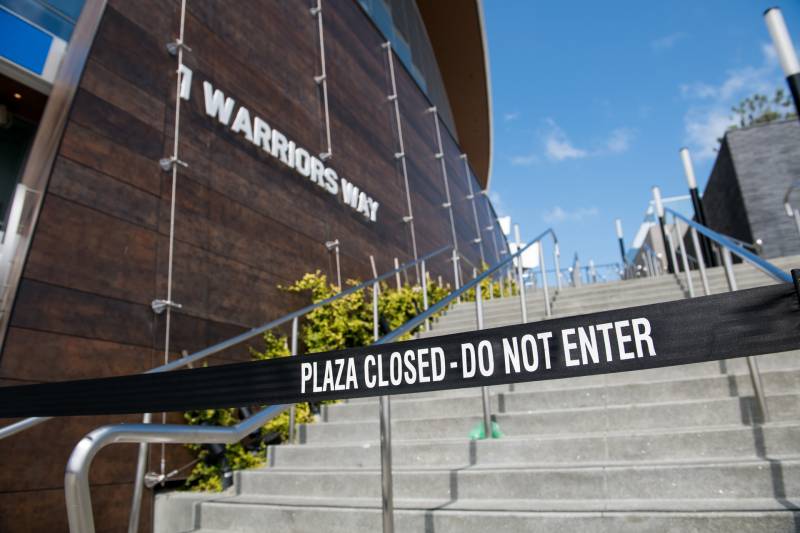In her seven years as a suite attendant for the Golden State Warriors, Alina Martinez has tried hard to avoid living paycheck to paycheck. She paid down her debts and saved what little was left every month. Even with years of diligent work, she and her husband only have enough in reserve to scrape by for a few weeks.
They’re going to need every penny right now. With the suspension of the NBA season due to the coronavirus pandemic, she and the other roughly 1,500 workers at the Warriors’ Chase Center in San Francisco are out of a job for the foreseeable future.
“I’m definitely scared,” Martinez said. “There’s a lot of anxiety and stress, because without generating revenue for such an extended period of time, what does that mean for me and my family?”
“If the pandemic lasts beyond a few weeks, it’s going to turn into a dire situation,” she added. She can collect unemployment, but it’s not going to be nearly enough to pay her monthly bills in San Francisco.
With the NBA season suspended, arena workers across the country like Martinez have no income. Individual players and organizations are pledging money, but in the best cases it replaces just a fraction of lost wages. The Golden State Warriors put up $1 million for all of the roughly 1,500 workers at their arena.

